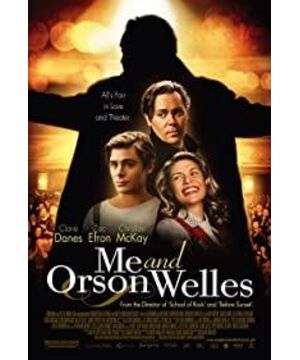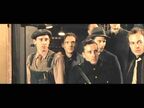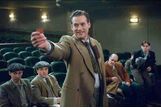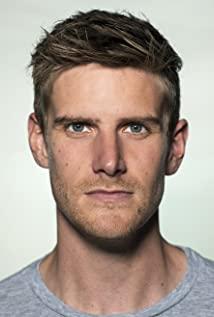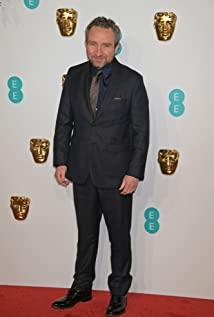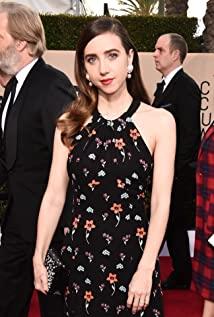In fact, "Orson Wells and Me" is very special. The in-play does not refer to the directorial experience of the movie genius Wells, but the road to Broadway before he entered Hollywood. This intention can be contemplated (interesting What's more, the film mainly "talks about the play", but there are movies everywhere outside the "play", the narration of "The Abeson Family", the "appearance" of "The Third Person", the rush of "Outside the Law", "Counterfeit" Portrait of...). And the perspective of the spectator is also worth chewing. Unlike Sarrielli in "Mozart" or Colin in "A Week with Monroe", they are virtual narrators. In this movie, Zach The narrator played by Efron is the real protagonist. Although the breath of Wells is ubiquitous in the movie, the migration of the protagonist (the choice of the previous theatrical background seems to imply this), it reveals The real intention between "Me and Orson Wells" came out.
To a certain extent, the film has moved away from Wells, but it has also made itself more complete.
From Efron's perspective, when he met Wells, he also met many other people, such as Sonja who also worked in the theater, and Greta who met at the record store. The characteristics of this role are gradually revealed at multiple levels in the intersection with these people (At the same time, Wells is still largely in the stereotype, strong desire for control, self-centered, and unreasonable... ). However, these characteristics are clearly different from the general protagonist's halo. He was naive and naive in his dealings with Sanya. Lu Shui Qingyuan was the love of his life in his eyes, but it was just a good relationship for Sonia. Although Sonia is kind, she is well versed in how to deal with things, and is doing her best to make compromises and calculations in order to enter Hollywood. There is no contrast between moral principles and self-willingness and depravity as Efron said between the two. On the contrary, it just highlights the ridiculous dumbfoundedness. This ridiculousness turned into a hint of pity in the relationship between Efron and Greta. The two met at the record store for the first time, and at the museum for the second time. Greta is a literary and artistic young woman who truly loves art. She listened to Richard Rogers, read Keats, and thought of Marcel Proust. Before she knew it, she was ready to become an artist. Efron can only hesitate. Compared with Greta, his so-called artistic cell is more like a kind of arty prepared only for dating.
As for him and Wells, in this "Me and Orson Wells", Efron wants to compete with Wells for women (to be honest, this is pretty shit), neither talent nor Without money or much power, he certainly ended in a big defeat. In biopics, geniuses are bastards, and legends are a lot of weird ones, but others, narrators, or insiders, always reach a certain degree of harmony with them, but this one does not. Efron and Wells ended in a break, and his connection with Joe (James Tapper looks like Joseph Cotton) is more than that of Wells. Ironically, in the end, Efron can only decorate himself with Wells' words and deeds, using Wells's mantra to comfort the actress, and using Wells' understanding of Shakespeare to win the praise of teachers and students (this is the point) The movie doesn’t say it clearly, but it’s obvious.) By
the way, Efron’s character is called Richard, and the director Richard Linklater is the same name. An unfamous 18-year-old Richard looks at Wells, who has no history. These sour and ignorant things make the movie more subtle.
So, "Orson Wells and Me" actually raised an interesting question at the end. It didn't answer who Orson Wells was, but instead asked, who was Richard? Furthermore, in front of the geniuses like Wells, who are we?
View more about Me and Orson Welles reviews


